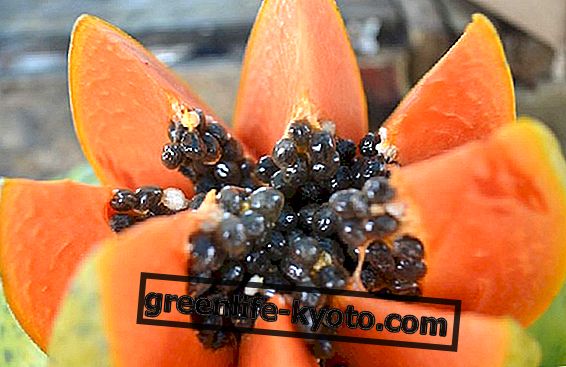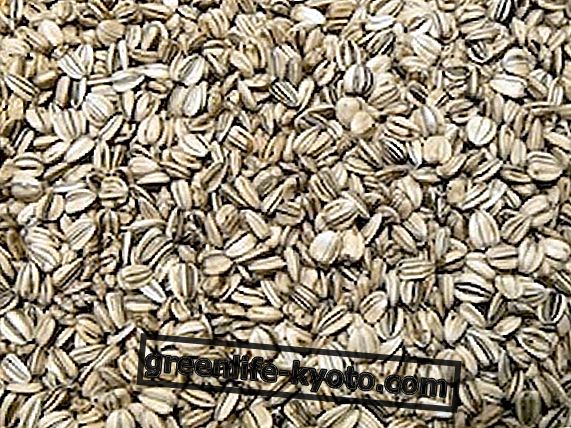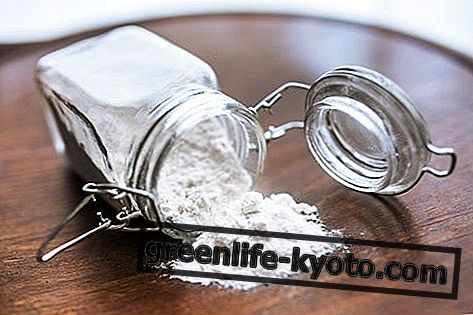Basil essential oil is derived from Ocimum basilicum, a plant of the Lamiaceae family. Known for its numerous properties, it has a balancing action on the bacterial flora, on the nervous system and has a mosquito repellent action. Let's find out better.

Properties and benefits of essential oil of basil
Stimulant : in addition to performing an antidepressant action on the nervous system, it promotes relaxation. Basil essential oil is indicated in case of mental fatigue, intellectual surmenage ; it can also be used to combat anxiety, insomnia, motion sickness, dizziness, and stress. It is also used in the treatment of epilepsy .
Rebalancing the intestinal flora: taken 2 drops in a teaspoon of honey, it is used to restore the optimal microbiological and physiological conditions of the bacterial flora; and to protect it from acid fermentations or from infectious attacks of fungi, yeasts and Gram (-) enterobacteria .
Decongestant : if inhaled, it helps to open up congested airways, fluidifies and helps to expectorate the phlegm, in case of asthma, flu, colds, bronchitis and sinusitis. Some diluted drops, in the nose serve against the loss of smell (anosmia).
Antiseptic: due to its antimicrobial properties, it is used in the treatment of fever and flu, infectious diseases and urinary tract diseases, such as coliform cystitis.
Analgesic: in the symptomatic treatment of joint pain due to gout, arthritis, headache, essential oil of basil can be used as an anti-inflammatory in case of edema and blood congestion .
Digestive : effective in the resolution of difficult digestions, helps reduce abdominal swelling, thanks to its carminative action ; while the antispathic properties play an important role in counteracting menstrual spasms and pains.
Insect repellent : if diffused in the environments, it is a very effective remedy against mosquitoes and to prevent bites and bites of annoying insects.
Description of the plant
Basil is an annual herbaceous plant, native to Asia, especially from India, now cultivated in many countries of the world for almost exclusive culinary use, it is normally cultivated as an aromatic plant . High up to 60 cm, it has opposite, oval, lance-shaped, sometimes bullous leaves, 2-5 centimeters long. The color of the leaves varies from pale green to intense green, or it is purple or purple in some varieties. The erect stems, branched, have a square section like many of the Lamiaceae, and the tendency to become woody and leafy. The small flowers, grouped in inflorescences at the axil of the leaves, are bilabiate, white or pink and have the corolla of 5 irregular petals. The stamens are 4 and yellow. The seeds are fine, oblong and black.
Part used
leaves
Extraction method
Steam current distillation
Note the essential oil of basil
Middle note: delicate, fresh, spicy-sweet and slightly balsamic fragrance
Basil essential oil is also useful for headaches. Find out how to use it!

Use and practical advice on essential oil of basil
Environmental diffusion : 1 g of essential oil of basil, for every square meter of the environment in which it spreads, by burner of essential oils or in the water of the radiators humidifiers, in presence, in emotional disturbances caused by stress and to keep away the summer insects .
Soothing ointment : 10 gc in a neutral cream, mix and massage on the skin for skin irritation, after the bite of insects or poisonous animal bites; and for the care of edematous and congested skin.
Tonic bath : 10 gc in the bath water, emulsify by shaking the water strongly, then dive for 10 minutes to stimulate blood circulation or to take advantage of the anti-inflammatory action on the osteoarticular system, in case of swelling of the lower limbs, venous stasis.
Internal use : 2 drops in a teaspoon of honey in cases of difficult digestion, dyspepsia, gastric atony, nausea and attacks of vomit and against infections and all intestinal disorders.
Contraindications of basil essential oil
If ingested at low doses, the essential oil of Basil is non-toxic and does not cause any sensitization effect, however, as with most oils, it should be avoided during pregnancy, lactation and children under the age of six. .
Background
Dedicated to Vishnu and Krishna, in India it is considered a sacred plant, while in Ayurvedic Medicine it is referred to as Tulsi, it is used in the treatment of many ailments.
The name derives from the Greek basilikon da basileus which means " king " and some interpretations believe it is so called, because it is used to produce perfumes for the king .
Among the ancient Egyptians, basil preserved a symbolism linked to death, considered a good omen for the afterlife and used, therefore, for embalming . The Chinese and the Arabs knew its medicinal properties.
At the time of the Greeks and Romans, basil was not taken into good consideration: a diabolic symbol of misfortune and hatred, so much so that Pliny the Elder attributed to the plant the ability to generate states of torpor and madness; while according to Chrysippus it could be harmful for the stomach and the liver. The ancient Romans associated it with the mythological figure of the basilisk, a snake-shaped creature capable of killing with a glance: the basil would have served as an antidote to its poison . An African legend also claims that basil protects against scorpions; while the crusaders filled the ships to hunt insects and bad smells.
The first texts that speak of basil in the kitchen can only be found from the late eighteenth century . Nineteenth-century explorers reported having encountered several species of Ocimum in Africa, Persia and Tropical Asia, native or cultivated.
In collaboration with Erboristeria del Pigneto













